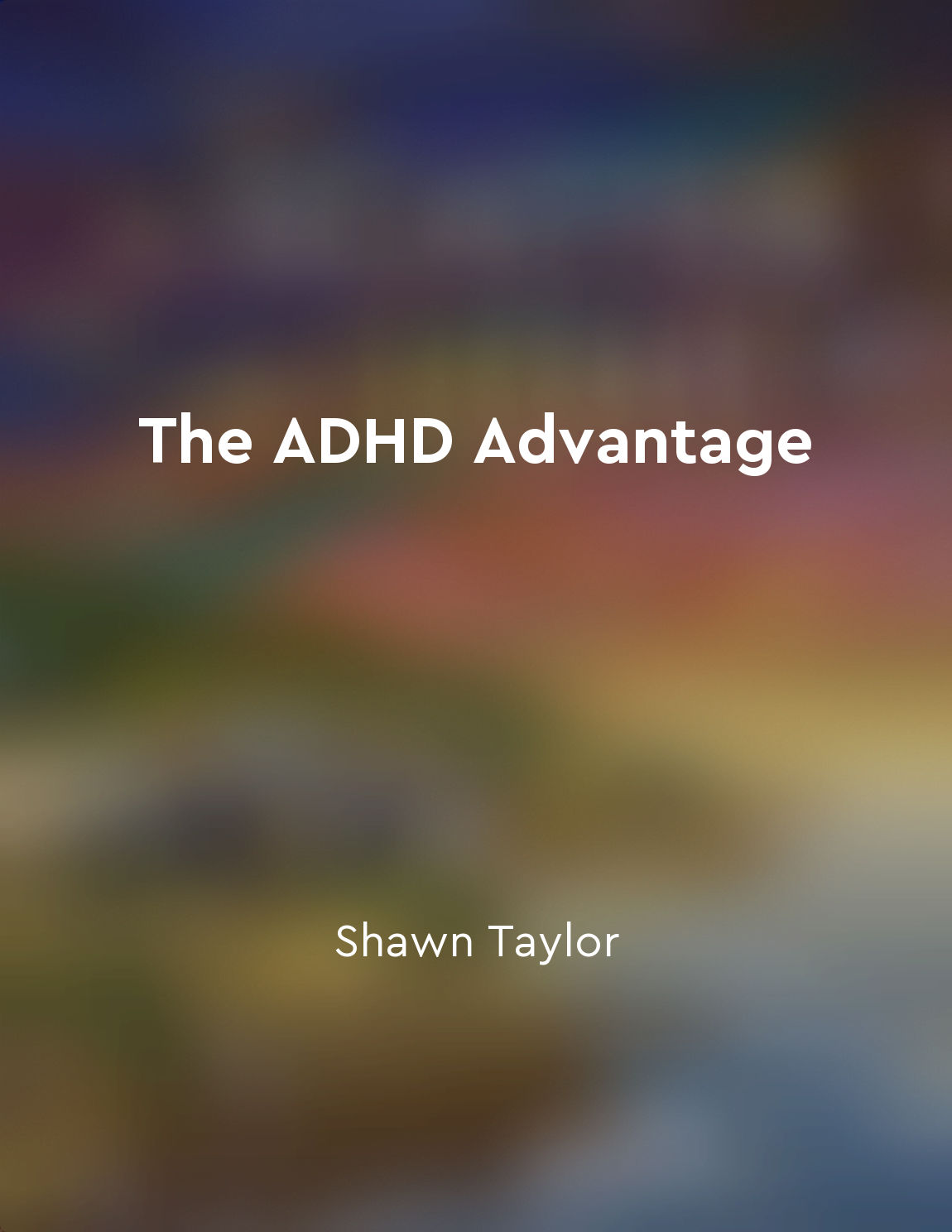Learning to regulate emotions is key for managing ADHD from "summary" of The ADHD Advantage by Shawn Taylor
The ability to regulate emotions plays a crucial role in managing ADHD. When emotions are not properly regulated, individuals with ADHD may struggle to focus, control impulses, and maintain attention. This can lead to difficulties in various aspects of life, including relationships, work, and daily tasks. Emotional dysregulation is a common challenge for people with ADHD. It can manifest in different ways, such as outbursts of anger, frustration, or emotional sensitivity. These intense emotions can be overwhelming and make it challenging to cope with the demands of daily life. Learning to regulate emotions can help individuals with ADHD better manage their symptoms and improve their overall well-being. By developing strategies to regulate emotions, individuals with ADHD can enhance their ability to focus, stay organized, and make thoughtful decisions. This can lead to improved outcomes in academic, professional, and personal settings. For example, by practicing mindfulness techniques or engaging in regular physical exercise, individuals with ADHD can learn to manage stress and anxiety more effectively. In addition to emotional regulation techniques, seeking support from mental health professionals or participating in therapy can be beneficial for individuals with ADHD. Therapy can provide a safe space to explore emotions, learn coping strategies, and develop skills to navigate challenges related to ADHD. It can also help individuals with ADHD build resilience and improve self-esteem.- Learning to regulate emotions is a key aspect of managing ADHD. By developing effective strategies, seeking support when needed, and practicing self-care, individuals with ADHD can enhance their emotional well-being and improve their ability to thrive in various areas of life.


